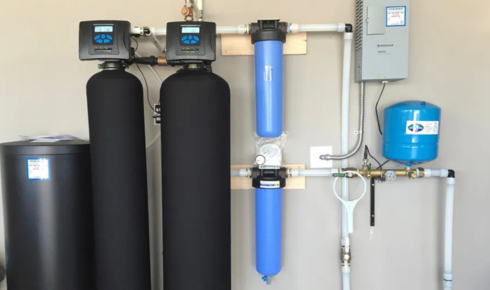
It’s easy to take water for granted. We turn on the tap, fill our glasses, and go about our day without a second thought. Yet behind that simple act lies one of humanity’s greatest challenges — keeping our water safe, sustainable, and accessible.
Across homes, farms, and industries, the push for smarter, more adaptable water systems is stronger than ever. Climate change, population growth, and aging infrastructure are forcing us to rethink how we manage one of the planet’s most precious resources. And right now, we’re standing at a fascinating crossroads where innovation meets necessity.
The Changing Nature of Water Treatment
Once upon a time, water treatment was a straightforward process — filter out impurities, add chlorine, and move on. But modern water challenges aren’t that simple anymore. From microplastics and pharmaceuticals to nitrate contamination and mineral buildup, the list of unwanted intruders keeps growing.
That’s where advanced water treatment solutions come in. They’re not just about cleaning water; they’re about transforming how we use, recycle, and protect it. Think smart sensors that monitor purity in real-time, ultraviolet sterilization that kills bacteria without chemicals, and eco-friendly filtration media that last longer and waste less.
Whether it’s a small rural well or a large municipal plant, today’s systems are built to adapt — and that flexibility is exactly what our future depends on.
Why It’s Personal: The Everyday Impact
Let’s be honest — most of us don’t get excited about water technology. We notice it only when things go wrong. Like when your shower leaves mineral spots on glass, or your washing machine starts wearing down early. Or worse, when you realize the water you’ve been drinking has a metallic taste that wasn’t there before.
These everyday inconveniences are just the surface symptoms of bigger water issues. Hardness, iron, sulfates, or bacterial contamination can all sneak into private wells or small community systems without obvious warning signs. That’s why regular testing and proper treatment aren’t just “good ideas” — they’re essential habits.
Because the truth is, clean water isn’t just about safety. It’s about comfort, longevity, and trust.
The Rise of Infinite Water
In the last decade, a new wave of companies has started reimagining what sustainable water management looks like. One of the most exciting concepts is infinite water — the idea that, with the right technology, water can be continuously purified, reused, and replenished without ever truly running out.
It’s not science fiction; it’s happening now. Advanced membrane systems, desalination technologies, and smart recycling methods are making it possible to turn wastewater into drinkable water that’s purer than what comes from many natural sources.
Countries like Singapore and Israel are already leading the charge, turning “waste” into resources through closed-loop purification systems. In homes and businesses, similar thinking is taking shape on a smaller scale — greywater recycling, rainwater harvesting, and compact purification units are making sustainable water use realistic for everyone.
It’s a shift from scarcity to stewardship — from fearing water shortages to mastering its endless potential.
The Special Case of Well Water
If you live in a rural area or on a private property, chances are you’re not connected to a city’s municipal supply. Instead, you rely on a well — a direct link to underground aquifers. And while that sounds pure and natural, wells come with their own set of headaches.
Mineral-heavy water, bacterial contamination, or even fluctuating pH levels can make maintenance a full-time job. That’s where well water treatment systems step in. These systems combine filters, softeners, and sterilization methods designed specifically for the quirks of groundwater.
They tackle hardness (which causes scale buildup), iron staining (that orange tint you hate seeing in your sinks), and unwanted odors caused by hydrogen sulfide. And with modern technology, they’re smarter than ever — automatically adjusting to changing water conditions without you having to lift a finger.
For many rural homeowners, it’s not just about improving taste — it’s about protecting plumbing, appliances, and health.
Technology and Trust
Let’s talk about something less technical but equally important: trust. Clean water isn’t just a mechanical process; it’s emotional. We all want to know the water we’re drinking, cooking with, and bathing in is safe.
That’s why transparency in water treatment matters so much now. More manufacturers are introducing digital dashboards that let users see exactly what’s happening inside their systems — from filter lifespan to purity levels. Remote monitoring can even alert you when something’s off, giving you control without requiring constant attention.
It’s water treatment, but humanized. And that’s how technology should feel — empowering, not intimidating.
A Business Perspective: More Than Just Cost Savings
For industries, investing in better water management isn’t just about being “green.” It’s about staying operational. Factories, farms, breweries, and even data centers depend on consistent water quality to run efficiently.
Hard water can wreck equipment. Contaminated water can ruin batches. And poor wastewater management can lead to costly fines.